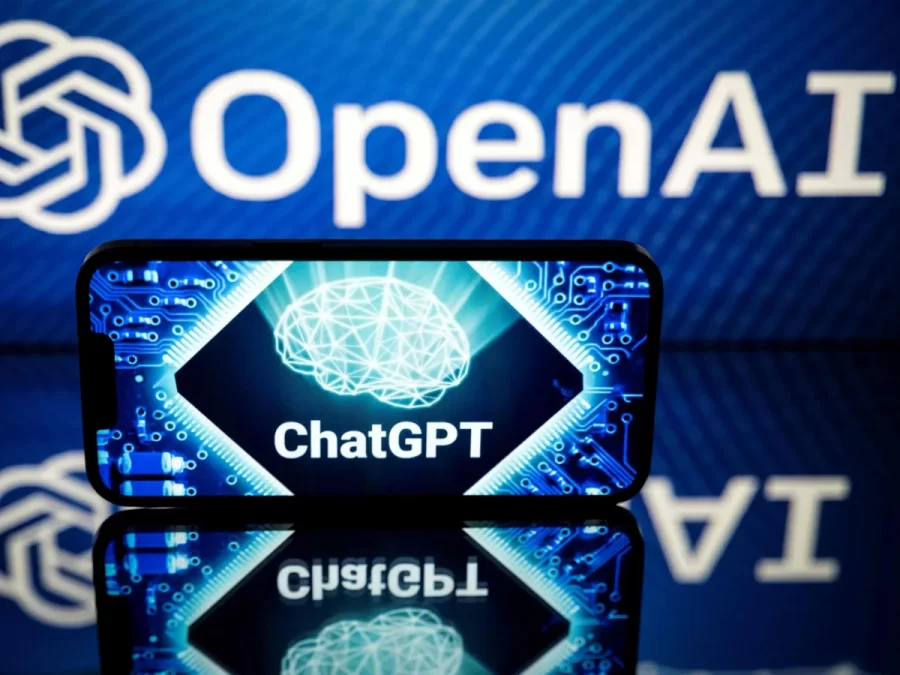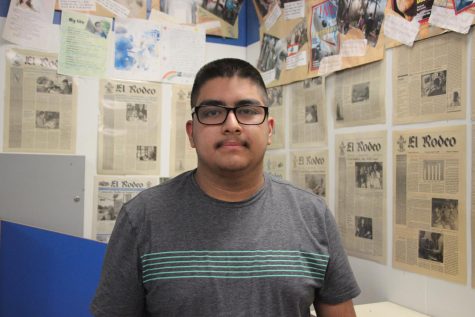AI is advancing at a frighteningly fast pace
February 7, 2023
Over the last year AI technology has vastly improved and has become more advanced. From writing text to art, it has become much more impressive and accessible than has ever been before. We have already reached a point where we have to be wary of any more advancements in this field of technology.
One of the most basic types of AI technology that has improved are text generators. These generators are given a prompt and use its database of various texts and different parts of the internet to finish it. On the internet, specific text generators known as chatbots have become very popular, the most popular being Chat GPT-3 made by OpenAI.
These generators are made to have the ability to have a conversation with. They have been around for a long time, earlier than 1970.
However, more recent chatbots have become more accessible to everyone due to the internet. Eventually, it will become harder and harder to be able to tell what is written by AI.
Another AI technology that has blown up on social media is AI art generators. After being given a prompt, these generators use a database of art to create a picture that closest resembles what the prompt said. Two AI art generators that have become very popular are DALL-E, also by OpenAI and Midjourney.
While some criticism has been levied on these generators for using people’s art without permission, they have continued to grow in popularity.
Some people have raised concerns about this technology possibly taking work away from some artists. Artists don’t like this prospect, of course, due to the fact that the generators don’t create original art but instead take art from its database and combine it to make a picture.
These concerns seem to have been proven correct as of January 31, when Netflix Japan announced the release of an animated short where the backgrounds of the entire short were made with AI image generation.
This could lead to more large companies to use AI art in their animated projects and would make it more difficult to find and get a job in the animation industry.
One of the most dangerous forms of AI that has been created are deepfakes. There are two main forms of deepfakes, image or video deepfakes and audio deepfakes. Image or video deepfakes is when you replace the likeness of someone in a photo or video with the likeness of someone else.
An audio deepfake takes the voice of someone and creates a sort of text-to-speech voice. This can be used to create speech sentences of a certain person. Basically, it uses someone’s voice to say something that person has never said before.
These two technologies have made many concerned, as they can be used to create defamatory pictures, videos, or voice clips. They can even be used in conjunction with each other to create a completely fake video of a public figure saying something they have never said before. These concerns have caused many people to call for some sort of restrictions on how these technologies can be used.
For now, these technologies remain accessible to the general public via the internet with specifically audio deepfakes being very accessible.
As this technology continues to develop and advance, it will be used in more and more things. On the live-streaming platform Twitch, an AI generated sitcom named Nothing, Forever, based on the sitcom Seinfeld, has been made and running since December 14 of last year. It is 3D computer animated and the characters act out AI generated scripts.
While it is still rudimentary and at most times nonsensical, it shows that something more advanced could be coming in the near future.
More companies may not hire scriptwriters if these AI generators get better. They may not hire artists due to AI art generators. They may not even hire voice actors if audio deepfakes improve.
AI technology is an interesting and fascinating piece of technology, but it may need some form of regulation in the near future. Without any regulation, it may make it harder for people in creative fields, like art, writing, or voice acting to get a job and may also be dangerous if left unchecked.



